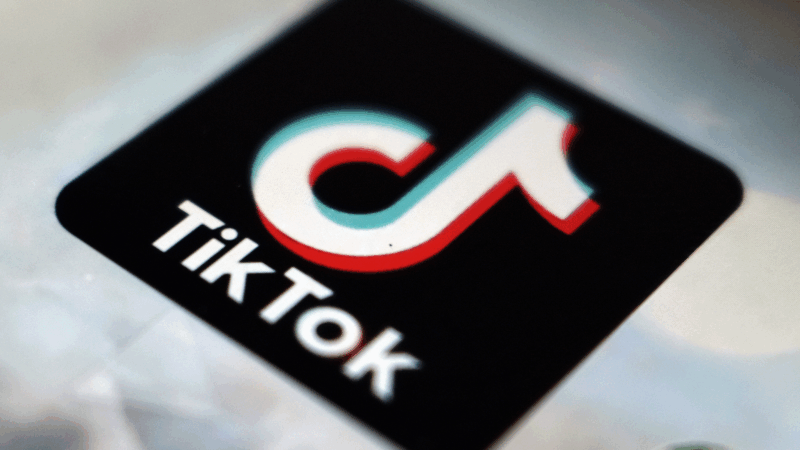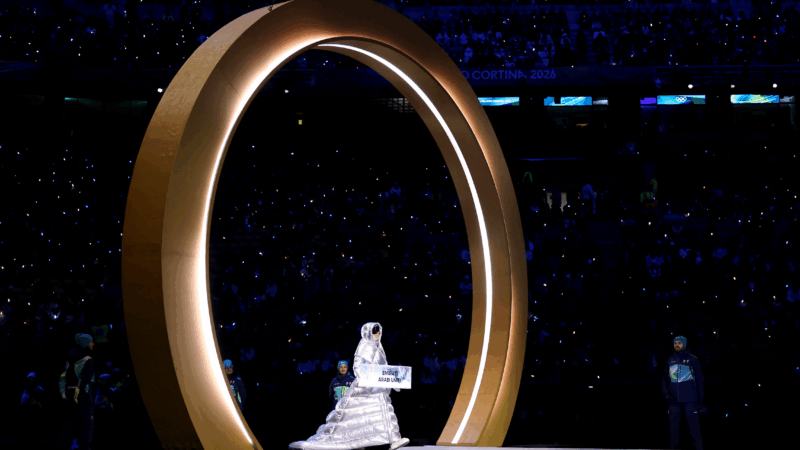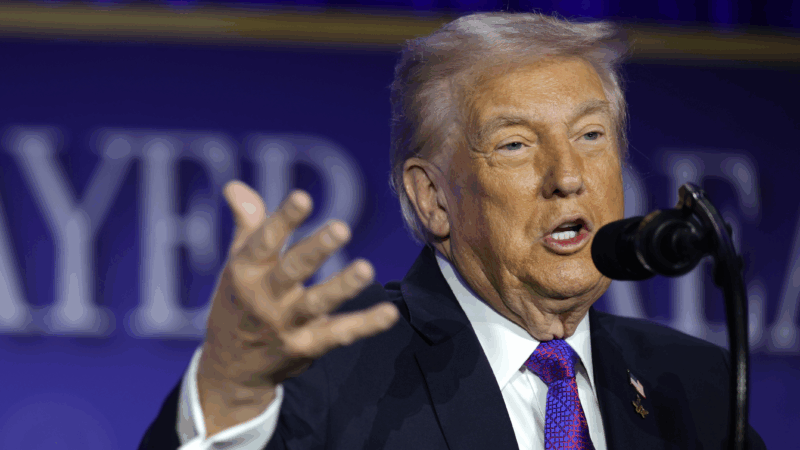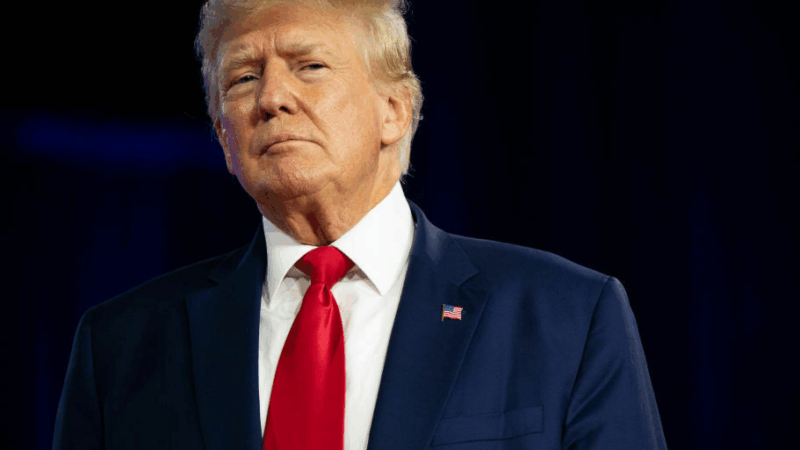Trump will toss TikTok another lifeline, pushing back its sell-by date for a third time
President Trump said he will once again give the short video app TikTok a reprieve, five months after the start date of a federal law banning it in the U.S. unless it splits with its Beijing-based owner, ByteDance.
“We’ll be extending it. We’re going to extend it,” Trump told reporters at the White House on Wednesday. “We’re going to probably make a deal – I think we’ll need China’s blessing on it.”
White House press secretary Karoline Leavitt said in a statement Trump would sign an executive order this week to keep TikTok up and running. He will grant the company a 90-day extension “which the Administration will spend working to ensure this deal is closed.”
“As he has said many times, President Trump does not want TikTok to go dark,” she said.
The promise of a reprieve comes in the wake of a high-stakes meeting between U.S. and Chinese officials in London last week where the two sides agreed on a framework to get stalled trade negotiations back on track.
TikTik did not immediately respond to a request for comment.
This would be Trump’s third such lifeline for the app since taking office.
Last year, Congress passed a law banning TikTok with overwhelming bipartisan support, demanding that an app used by more than half of Americans should not be controlled by a company in China. Lawmakers worried that it could be used to spy on, or influence, American users. TikTok fought the ban all the way to the Supreme Court, calling it a violation of free speech rights — but the high court upheld the law.
The ban was slated to go into effect on January 19, 2025, the day before Trump took office. Just before midnight on January 18, TikTok took itself offline and disappeared from app stores. The following morning, although still not yet in office, Trump promised he’d pause enforcement of the ban, and the app came back online.
On Inauguration Day, Trump signed an executive order effectively pushing back the start of the ban by 75 days, and promising immunity for other tech companies that provide back end services for the app, such as Apple and Google, which offer it in their web stores.
In April, as the new deadline approached, a deal seemed to be taking shape that would have handed a majority stake to a consortium of U.S. companies, allowing them to license TikTok’s algorithm. But the deal collapsed after Trump slapped sky-high tariffs on China and fired National Security Council officials, one of whom was involved in the TikTok deal. He granted the company another 75-day reprieve, which is due to end on June 19.
Some legal experts say Trump’s delays run afoul of the law banning TikTok, which allows for a single 90-day extension but only if certain conditions are met, like certifying to Congress that a divestiture from ByteDance is in motion.
Speaking before the latest promise of an extension, Ryan Calo, a professor at the University of Washington law school who follows tech, says Trump has operated outside the statutory framework so far.
“This president is not operating within Congress’s intent,” he said. “It sets a bad precedent, wherein the president feels like he can simply ignore a congressional statute.”
The White House did not immediately return a request for comment on the legal grounds for these extensions.
For his part, Trump contends that he is operating within the bounds of the law. Asked on Tuesday if he had the legal basis to extend the reprieve, Trump told reporters traveling with him on Air Force One: “Yeah, sure. Yeah, we do.”
Moves by Trump and his administration to assure TikTok and its service providers that U.S. authorities will not prosecute anyone under the law have been enough for the popular app to stay online. Apple and Google restored TikTok to their app stores in February.
Calo says these companies are at risk because “every company that helps bring TikTok to Americans is technically violating an act of Congress right now and has been for months.”
“They’re taking a risk by continuing to support TikTok on the strength of this president’s commitment that he’s not going to prosecute, because it doesn’t say that, you know, people that are helping TikTok are off the hook,” Calo said. Although Trump’s January executive order says the Justice Department “shall take no action” to enforce the ban or administer penalties, he says, “There are zero guarantees.”
Apple and Google did not reply to emailed questions about Trump’s reprieves for TikTok.
Apple and Google are financial supporters of NPR.
Mariah Carey, coffee makers and other highlights from the Olympic opening ceremony
NPR reporters at the Milan opening ceremony layered up and took notes.
Trump’s harsh immigration tactics are taking a political hit
President Trump's popularity on one of his political strengths is in jeopardy.
A drop in CDC health alerts leaves doctors ‘flying blind’
Doctors and public health officials are concerned about the drop in health alerts from the Centers for Disease Control and Prevention since President Trump returned for a second term.
Photos: Highlights from the Winter Olympics opening ceremony
Athletes from around the world attended the 2026 Winter Olympics opening ceremony in Milan.
Alabama sets execution for man in auto parts store customer’s death
Gov. Kay Ivey on Thursday set a March 12 execution using nitrogen gas for Charles “Sonny” Burton. Burton was convicted as an accomplice in the shooting death of Doug Battle, a customer who was killed during an 1991 robbery of an auto parts store in Talladega.
Trump posts racist meme of the Obamas — then deletes it
Trump's racist post came at the end of a minute-long video promoting conspiracy theories about the 2020 election.







